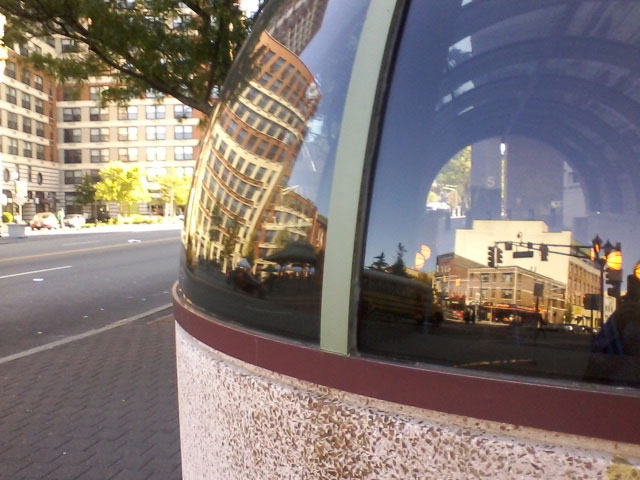Recommended: Collection of Soundcloud tracks from the PC Music label, based in London.
(Hat tips Ryder and Ryz)
I'd start with Bobby, by GFOTY ("get the fuck out thank you"?)*. Nursery-rhyme rapping with a core of adolescent cool masking adolescent sadness, as seen in the contradiction between the lines "I can't remember anything as clearly as the day that we broke up" and the voicemail-trebly "basically I'm over it."
Also interesting are Danny L. Harle's "Broken Flowers," Dreamtrak's "Odyssey, Pt. 2 (A. G. Cook Remix)," and the tracks by easyFun, recalling Max Tundra and/or Frank Zappa's synclavier period.
The PC Music tunes are intricate, digital/sampladelic, UK garage-influenced pop, everything super-sped-up and (I'm guessing) Abletonned.
Somewhere between happy hardcore and synthpop but not derivative -- this music refutes Simon Reynolds' young fogey thesis that's it's all been done. How could it be with technology constantly changing due to Moore's Law and other variables.
*Girlfriend of the year (4/14/2015 update)



